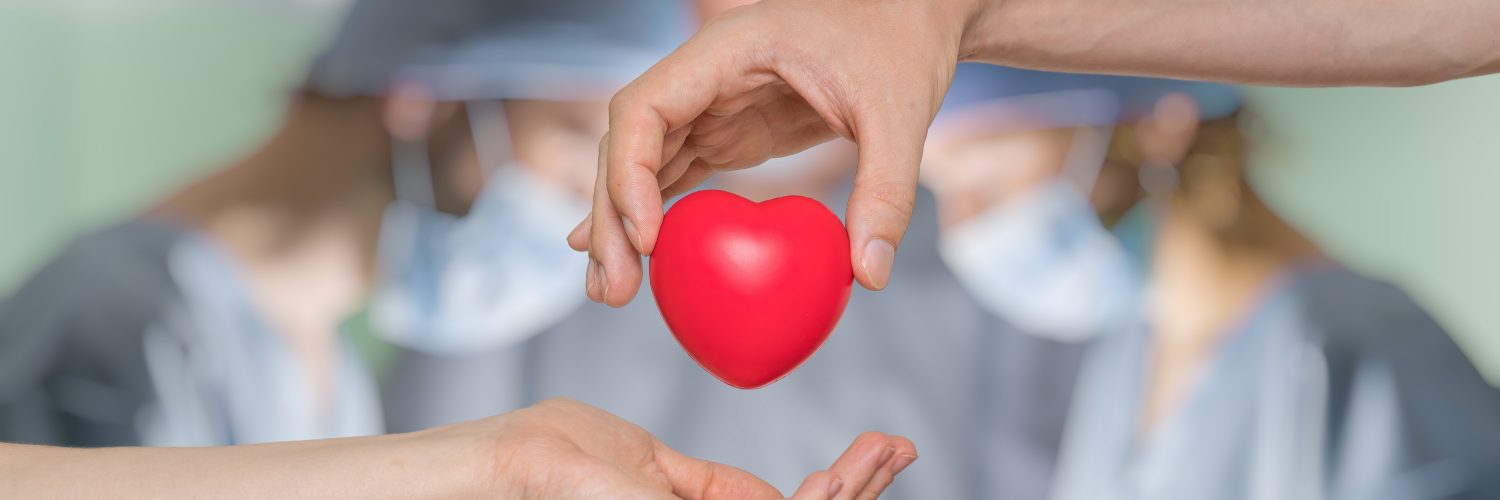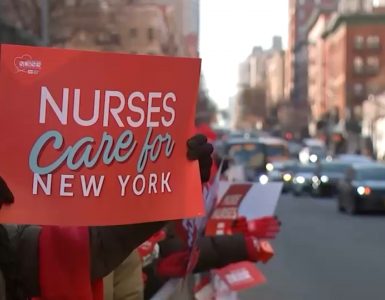(This is the third and final portion of this series – for the previous essays, see our website[1])
The Rambam and Ramban
The Rambam states (Peirush haMishnayos, Nedarim 4:4) that the source for the Mitzva of Refua is the Pasuk: “vaHashevoso Lo – And you shall return it to him” (Devarim 22:2), as noted above.The Maharatz Chiyus (Nedarim ibid.) asks why hedid not cite the Pasuk of “v’Rapo Y’rapei” (Shemos 21:19). The Torah Temima suggests an answer(footnote ibid.):
Since [Refua] is a Mitzva there is certainly no prohibition, as it would be illogical for the Torah to command something that is not permissible. Do not ask why the Gemara needs to derive it from “v’Rapo Y’rapei” given that it is [already] derived from [the Drasha,] “And you shall return it to him – including his body”. For we may say that since the Mitzva to heal is not explicitly stated in the Torah but is derived from a Drasha, [Chaza”l] utilize the Pasuk of “v’Rapo Y’rapei” as a support.
In other words, if the Torah had not granted permission to engage in Refua with the Pasuk of “v’Rapo Y’rapei”, we would not have derived a Mitzva from other sources, such as “vaHashevoso”, which is written in another context.
As we noted in Part 2 of this series, the Ramban (Toras haAdam, Sha’ar haSakana) contends that the Mitzva to heal is derived from several sources. Nevertheless, the Torah also granted Reshus from the Pasuk “v’Rapo Y’rapei” to preclude someone from legitimately claiming an exemption from the Mitzva due to the fear of making an error and causing harm.
The Rambam and Ramban’s differing sources seem to indicate that they argue over the definition of the Mitzva of Refua. The Rambam, who derives the obligation from “vaHashevoso”, understands that the Mitzva is defined by the result. A person who finds a lost item but allows it to become ruined before he returns it has not fulfilled the Mitzva of Hashavas Aveida. The same would apply to Hashavas Gufo (restoring health). Thus, if the patientdies, the doctor has not fulfilled the Mitzva of Refua despite his best intentions.
However, the Ramban holds that this is exactly the lesson of “v’Rapo Y’rapei”. Even if a doctor errs, he has fulfilled the Mitzva, since the very act of Refua is a Mitzva, as he states: “The [word] ‘Reshus’ means that there is a Mitzva to heal and it is included in Pikuach Nefesh.”
This approach is supported by the Moshav Zekeinim who questions Rashi’s explanationthat the words “v’Rapo Y’rapei” grant permission to engage in Refua due to the argument that otherwise one should not interfere with Hashem’s running of the world – “Hashem causes illness and he (the physician) heals!”
This seems illogical since we derive from [the Pasuk:] “Do not stand [idly] by the blood of your fellow” that if a person sees his fellow drowning in a river he must save him and we do not say, “Hashem causes illness and he heals.” [Rather,] Rabbenu Chaim explains: From here [we learn] that a doctor has permission to heal, and we are not concerned that he may [accidentally] kill [the Choleh]…
This implies that the very act of Refua is itself a Mitzva.
Ibn Ezra – Internal or External Refua
Ibn Ezra asserts in his comments on the Pasuk of “v’Rapo Y’rapei” that there is a difference between an internal and external ailment:
…Reshus is given to doctors to heal wounds that are visible externally [on the body]. But any illness inside the body is in the hand of Hashem to heal. Likewise, it states: “For He causes pain and heals” (Iyov 5:18) and regarding Asa: “Even in his illness, he did not seek out Hashem, but the doctors” (Divrei haYamim 2:16:12).[2]
The Ibn Ezra differentiates between injuries caused by man and those caused by Hashem. A physician only has permission to heal the former. In his comments to Sefer Tehillim he adds (32:10): “Know that the Pasuk only permits healing a wound [caused] by man; for Hashem alone is the Healer of Yisrael. His Refua is to strengthen the soul and to increase fear [of Hashem].”
Elsewhere he explains the difference(Shemos 23:25):
Hashem gave the Torah to strengthen and elevate the lofty soul so that the body will not rule over it. But if the Torah is not observed, the body will rule over the soul… Hashem chose Yisrael and taught them His Torah. When they observe it, they will discover their wisdom and it will lead them on the straight path in every matter so that no harm befalls them. Ultimately, the body must be subservient to the soul and not the opposite (i.e., the soul be subservient to the body). When the soul is strengthened, so is the guardian of the body that a person receives from Heaven – this is called “Nature”.
The blessing will be upon all food and drink. For there is a curse that diminishes the power of nature, as in “You shall eat but not be satisfied” (Micha 6:14). All illnesses come from the food that enters the body; but a person who observes the Torah will not fear them. This is [the meaning of] “And He will bless your bread.” Other diseases come from outside the body due to changes in the atmosphere caused by a shift in the planetary systems. The Torah states, “And I will remove illness from your midst” regarding this. Thus, a person who observes the Torah does not need a physician in conjunction with Hashem, hence it states: “Even in his illness, he did not seek out Hashem, but the doctors” (Divrei haYamim 2:16:12). I have thus spoken regarding the wisdom of medicine.
In other words, if a person follows Hashem’s path his soul will protect his body from harm. However, this only applies to internal illnesses that stem from the body, not external ailments that do not come from the influence of the soul.
The Mateh Moshe
The Mateh Moshe (Gemilus Chasadim 4:3) asserts that the general custom does not follow the Ibn Ezra’s approach. He cites several sources suggesting that the Chachamim would turn to physicians even for internal illnesses[3] and he concludes:
Therefore, a person should not refrain from [turning to] medicine nor should he leave someone to their natural fate. For when [Chaza”l] state that permission was granted to a doctor to practice medicine, they meant in all areas of medicine; both internal and external. This [word] Reshus means there is a Mitzva to heal, as long as [the Choleh] never removes his trust from Hashem. He should feel that everything is dependent on His will and that the doctor is Hashem’s emissary.
The Ibn Ezra would likely say that the Amoraim only turned to physicians to treat internal illnesses when they were caused by human negligence, as per the Gemara which states that illnesses caused by the elements are within man’s ability to avoid. Physicians do indeed have Reshus to treat illnesses of that nature.
Kreisi uPleisi[4]
The Kreisi uPleisi (188:5) suggests a different distinction between internal and external illnesses. An external illness is visible; there is less room for the physician to err. By contrast, an internal illness is unclear; a physician can only make an educated guess at the diagnosis and its treatment.
This may also explain why in some cases the Amoraim turned to physicians even in cases of internal illness: in those cases, the nature of the illness was clear.
Nowadays, when we have advanced technological means to diagnose internal illnesses, perhaps even the stringent view would permit a physician to heal an internal illness.
Part 4 – Chachmei Yisrael’s View of Physicians
Chaza”l – and many Chachmei Yisrael over the generations – have extolled the field of Refua and those who work in it. Rebbi even called physicians “guardians” as related in Maseches Avoda Zara (40b):
One time, Rebbi’s stomach hurt. He asked: “Is there anyone who knows whether the apple wine of Nachrim is forbidden or permitted?” R’ Yishmael ben R’ Yossi replied: “Once my father’s stomach hurt so they brought him 70-year-old apple wine of Nachrim and he drank it and was cured. [Rebbi] replied: “You knew all of this and still allowed me to suffer [by withholding the information]?” They searched and found a Nachri who had 300 jugs of 70-year-old apple wine and he drank and was cured. He said: “Blessed is Hashem who handed His world to guardians.”
Similarly, the Yerushalmi states (Ta’anis 3:6): “R’ Elazar said: Honor your physician before you end up needing him.” Ben Sira dedicated an entire Perek of his Sefer (38) to extolling physicians with statements such as: “Give splendor and honor to a physician, for he will stand by you at a time of need. Hashem created the doctor and healer; kings will honor them. The wisdom of a physician will elevate him and nobles will be astounded by him.”
Chaza”l state in Bava Kama (85a): “A physician who heals for nothing is worth nothing” and “A physician from a distant land [who does not understand the patient and his illness] may blind an eye.”
R’ Yehuda haChassid declares (Sefer Chassidim 592): “Who is a wise physician? One who can advise how to prevent illness. But a physician who cannot do this, even if he heals, is not a wise physician.”
A physician must be an example to others, as the Medrash states (Bereishis 23:5): “Physician! Heal your blemish”.
The Halacha forbids a person to live in a city without a doctor, as stated in Sanhedrin (17b):
A Talmid Chacham may not dwell in a city that does not have these ten things: A Beis Din that [carries out] lashes and punishment, a charity collection that is collected by two people and distributed by three people, a shul, a bathhouse, a bathroom, a physician, a blood-letter, a scribe, a butcher, and a teacher of children.
This Halacha is codified by the Rambam (Hilchos De’os 4:23), although Rashi interprets the word “Rofeh” as a Mohel rather than a physician. On the other hand, the Gemara states (Pesachim 113a) that a person should not live in a city where the mayor is a doctor. The Rashbam explains that this is because “he is involved in his medical practice and cannot tend to communal needs”.
Part 5 – Tov she’b’Rofim l’Gehinom
The final Mishna in Maseches Kiddushin contains a famous, albeit misunderstood, statement:
Most donkey drivers are wicked, most camel drivers are kosher, most sailors are pious, the best of doctors [go to] Gehinom.
The Mefarshim struggle to understand this statement. After all, if a physician works with Yiras Shamayim he should be destined for Gan Eden, for he is occupied with one of the most important Mitzvos in the Torah. They explain that Chaza”l refer to physicians whose behavior can endanger them spiritually. We will mention several explanations:
Rashi
Rashi explains (Kiddushin 82a):
“The best of doctors [go to] Gehinom” – for he is not afraid of illness, he eats healthy food, [but] he does not subjugate his heart to Hashem, he sometimes kills people, and he can cure a pauper but refuses.
In other words, a doctor is likely to rely on his own knowledge and healthy lifestyle such that he will not put his trust in Hashem. Furthermore, his field of work is so crucial that any negligence on his part may lead to fatalities for which he bears responsibility. He may also ignore the medical needs of those who cannot afford to pay. All of these factors place a physician in spiritual danger. However, he is certainly able to overcome them.
Ramban
The Ramban explains (Toras haAdam, end of Sha’ar haSakana):
The statement, “The best of doctors [go to] Gehinom” (Kiddushin 82a) means to denigrate the way of doctors because of their negligence, not [to say] that there is any concern of Issur in the matter. It is like the other statement, “The best of butchers are partners with Amalek” – yet if he acts justly he certainly increases his merit. For his trade is one of banditry, yet he did not learn from their ways.
The Ramban explains that the common practice of physicians is to be negligent as they do not attribute sufficient importance to human life. However, a careful doctor is certainly worthy of praise.
Meiri
The Meiri explains (ibid.):
For he often kills [patients] due to despairing [of their recovery] and he does not expend sufficient effort in his practice. Sometimes he does not know the cause of the illness and its cure but pretends to be an expert.
The Meiri describes three pitfalls in the practice of medicine. A physician may refuse to treat a patient because he has lost all hope of his recovery. He may be lax in his work; refraining from taking counsel and not making efforts to increase his knowledge by studying further. Furthermore, due to his ego, he may pretend to understand a medical situation and refuse to seek needed advice.
Maharal
The Maharal explains this on a deeper level (Netzach Yisrael 30):
If he is a physician and not a person of Torah, all of his focus is on physical matters, hence he is a Ba’al Gehinom. For Gehinom is nothing more than emptiness and evil. Physicality has no actual reality – it only exists in potential, hence, this emptiness clings to it, as is known regarding physical matters that are not found in reality. Hence, a person of Teva who focuses on physical matters that have no reality is a Ba’al Gehinom.
The Maharal exhorts a physician to remember that the true doctor is Hashem and that there is no natural way to cancel His decrees. Sometimes a person must be healed by natural means; the doctor acts as Hashem’s emissary.
In the Sefer Even Bochan, R’ Klonymus ben Klonymus explains that the Gemara does not refer to actual physicians, but to frauds and illusionists.
Maharsha
The Maharsha explains (ibid.):
“The best of doctors” means that he considers himself to be the most expert physician. Out of arrogance, he relies heavily on his expertise and sometimes he errs in diagnosis and kills a patient with medications that are harmful to him. Instead, he should consult with other doctors since it is a [matter of potential] danger to his soul.
In other words, the Gemara does not refer to every doctor, or even to the best of doctors, but to a regular doctor who arrogantly believes that he is the top physician – the “Tov she’b’Rofim”. If he would consider himself a regular doctor he would acquit himself better. His arrogance will lead to mistakes, malpractice, and poor decision-making. This makes him deserving of Gehinom.
[1] https://medicalhalacha.org/2024/03/28/license-to-heal-part-1/ and https://medicalhalacha.org/2024/04/04/license-to-heal-part-2-the-mitzva-to-heal/
[2] Rabbenu Bachya writes similarly in his comments there.
[3] See Brachos 40a, 44b, 51a, Shabbos 66-67, 140a, Nedarim 49a, 50b, Gittin 67, Bava Metzia 85a, and Avoda Zara 27b.
[4] R’ Yehonasan Eibeshitz zt”l (1696-1764)












Add comment